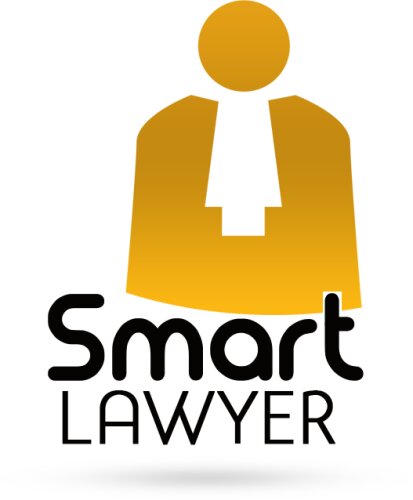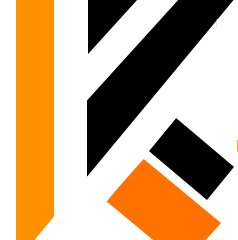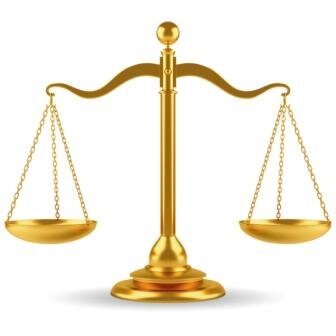Best ADR Mediation & Arbitration Lawyers in DR Congo
Share your needs with us, get contacted by law firms.
Free. Takes 2 min.
Or refine your search by selecting a city:
List of the best lawyers in DR Congo
About ADR Mediation & Arbitration Law in DR Congo
Alternative Dispute Resolution (ADR) in the Democratic Republic of Congo (DRC) encompasses various methods of resolving disputes outside the judiciary courts, with Mediation and Arbitration being the most prominent. These methods are increasingly recognized as efficient means to handle conflicts due to their flexibility, confidentiality, and generally quicker timeframes compared to traditional court proceedings. The DRC's legal framework encourages ADR, particularly in commercial disputes, to facilitate a more business-friendly environment and ensure parties can achieve mutually satisfactory outcomes.
Why You May Need a Lawyer
There are several situations where legal assistance in ADR Mediation & Arbitration might be necessary. Common scenarios include:
- Complex commercial disputes where parties need expert guidance to navigate the process.
- When entering into contracts that stipulate ADR clauses to ensure these are well-drafted.
- If you are unfamiliar with the legal procedures and documentation involved in ADR processes.
- Cases involving international parties, where understanding different legal frameworks and languages is essential.
- Disputes requiring appointment of impartial mediators or arbitrators.
- When an agreement from ADR needs enforcement or if a non-binding decision requires conversion to a judgment.
Local Laws Overview
The legal landscape for ADR in the DRC is outlined in several key legislative documents, including the OHADA Uniform Act on Arbitration, which applies to member states including the DRC. Key aspects include:
- Recognition and enforcement of arbitration agreements and awards.
- Basic principles governing the arbitral process, such as independence and impartiality of arbitrators.
- Mediation practices, which may not be as formally legislated as arbitration, but are gaining confidence and structure through local and international influences.
- Regulatory bodies and institutions, such as the Centre d'Arbitrage de Kinshasa-Gombe (CAKG), which aid in structuring the ADR processes in the country.
Frequently Asked Questions
1. What is the difference between mediation and arbitration in the DRC?
Mediation is a process where a neutral third party facilitates negotiation between disputing parties to reach a consensus, while arbitration involves a binding decision made by an arbitrator, which is enforceable like a court judgment.
2. Is ADR legally binding in the DR Congo?
Yes, particularly arbitration. Arbitration awards are legally binding and enforceable in the DRC. Mediation agreements can also be enforceable if the terms agreed upon are incorporated into a formal contract.
3. Can foreign arbitration awards be enforced in the DRC?
Yes, the DRC is a party to the New York Convention on the Recognition and Enforcement of Foreign Arbitral Awards, allowing for the enforcement of foreign awards under certain conditions.
4. What are the typical costs associated with ADR in the DRC?
Costs can vary widely based on the complexity of the case, the arbitrators' fees, and administrative expenses. Generally, ADR could be less expensive than litigation, yet it's essential to consult with a lawyer for a detailed cost estimate.
5. How do I select an arbitrator or mediator in the DRC?
You can choose from panels offered by institutions like the CAKG, or mutually agree on a professional with qualifications suitable to your case requirements.
6. What is the enforceability of ADR outcomes?
Arbitral awards are enforceable through the courts if necessary, while mediation agreements require legal recognition often through a court order or contract.
7. Is legal representation required during ADR processes?
While not mandatory, having legal representation is advisable to ensure rights are adequately protected and proceedings are correctly managed.
8. Are ADR sessions confidential?
Yes, confidentiality is a fundamental attribute of ADR processes, especially mediation, where parties can openly discuss without public disclosure.
9. What is the typical timeline for resolving disputes through ADR in the DRC?
The timeline is approximately 3-6 months for arbitration and possibly shorter for mediation, but this depends on the dispute's nature and complexity.
10. Are there specific laws regarding online ADR in the DRC?
Online ADR is not yet widely implemented but is gaining attention. Existing ADR rules can usually adapt to online environments, with proper legal structuring for electronic communications.
Additional Resources
For further assistance, consider reaching out to the following organizations:
- Centre d'Arbitrage de Kinshasa-Gombe (CAKG)
- Ministry of Justice and Human Rights of the DRC
- OHADA (Organization for the Harmonization of Corporate Law in Africa) for more on arbitration laws
- Local Bar Associations for referrals to experienced ADR lawyers
Next Steps
If you need legal assistance in ADR Mediation & Arbitration, here are the steps to follow:
- Identify and clarify the nature of the dispute and potential outcomes you are seeking.
- Consult with a lawyer specializing in ADR to review your case and advise on the best approach.
- Review and gather all necessary documentation related to the dispute.
- Engage a reputable ADR institution or professional.
- Prepare for sessions or hearings by understanding the process and your role.
- Follow the lawyer’s strategies and recommendations throughout the ADR process to achieve a satisfactory resolution.
Lawzana helps you find the best lawyers and law firms in DR Congo through a curated and pre-screened list of qualified legal professionals. Our platform offers rankings and detailed profiles of attorneys and law firms, allowing you to compare based on practice areas, including ADR Mediation & Arbitration , experience, and client feedback.
Each profile includes a description of the firm's areas of practice, client reviews, team members and partners, year of establishment, spoken languages, office locations, contact information, social media presence, and any published articles or resources. Most firms on our platform speak English and are experienced in both local and international legal matters.
Get a quote from top-rated law firms in DR Congo — quickly, securely, and without unnecessary hassle.
Disclaimer:
The information provided on this page is for general informational purposes only and does not constitute legal advice. While we strive to ensure the accuracy and relevance of the content, legal information may change over time, and interpretations of the law can vary. You should always consult with a qualified legal professional for advice specific to your situation.
We disclaim all liability for actions taken or not taken based on the content of this page. If you believe any information is incorrect or outdated, please contact us, and we will review and update it where appropriate.
Browse adr mediation & arbitration law firms by city in DR Congo
Refine your search by selecting a city.














